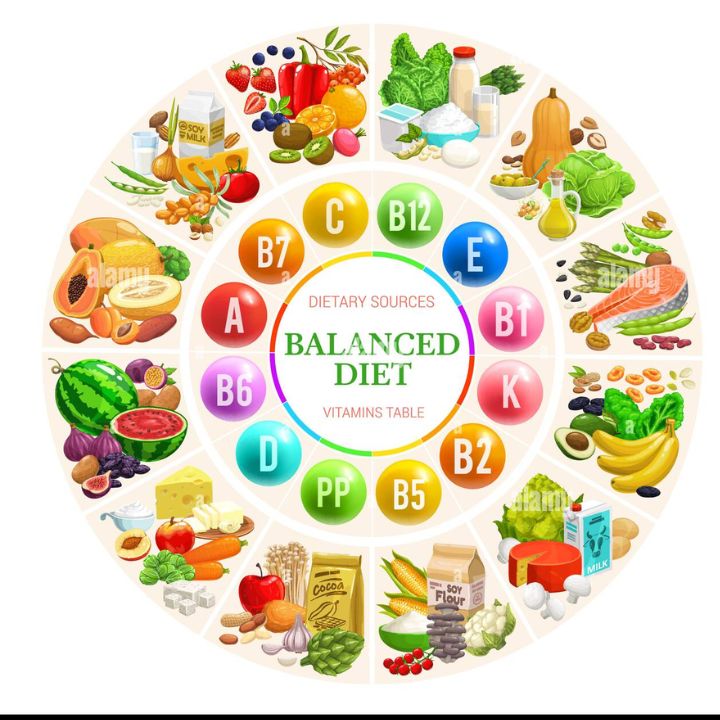A balanced diet is of significant importance to women of all ages in order to be able to maintain their health, have energy, be hormonally balanced, and be able to prevent diseases. If a woman is eating a well-balanced diet designed to complement her specific needs, she will definitely see a positive change in her life. This healthy diet chart for women is not only feasible but also necessary, regardless of whether you hope to regulate your weight, foster your reproductive system, or simply be alive and kicking.
Why Women Should Have Their Own Diet Regimen
There are certain changes in the life of a woman – puberty, pregnancy, lactation, and menopause are the good examples – that are very hormone-dependent and cause certain physiological changes. Each of these needs adequate dieting that involves meals rich in nutrients as it helps to:
- Support bone health
- Balance hormones
- Enhance skin and hair health
- Boost immunity
- Improve mental focus
- Maintain healthy weight
Critical Female Nutrients
- Protein: It is an essential building material of tissues, also it functions to repair the body and is important for the increase of muscle tissue.
- Sources: Eggs, tofu, chicken, lentils, yogurt
- Calcium: Needed for the proper growth of the bones and also for the renewal of teeth, moreover, in this postmenopausal period, it is more important.
- Sources: Milk, leafy greens, almonds, fortified cereals
- Iron: It is necessary for making red blood cells, and therefore, it becomes especially important during menstruation.
- Sources: Spinach, red meat, beans, pumpkin seeds
- Folic Acid: It is a form of folate that is needed during the period of pregnancy for the closing of the baby’s backbone as it is born.
- Sources: Leafy greens, citrus fruits, legumes
- Vitamin D: It is the nutrient that is responsible for absorbing the calcium from the food that you eat.
- Sources: Sunlight, fish, eggs, dairy products
- Omega-3 Fatty Acids: It aids in heart and brain health.
- Sources: Flaxseeds, walnuts, salmon, chia seeds
Sample Daily Healthy Diet Chart for Women
Morning (7:00 AM – 8:00 AM)
- 1 glass warm water with lemon or soaked fenugreek seeds
- 5-6 soaked almonds or 1 walnut
Breakfast (8:30 AM – 9:00 AM)
- 1 bowl oatmeal with fruits and flaxseeds
- Or 2 boiled eggs + 1 multigrain toast + green tea
Mid-Morning Snack (11:00 AM)
- 1 seasonal fruit (apple, orange, papaya)
- Or 1 bowl Greek yogurt with berries
Lunch (1:00 PM – 2:00 PM)
- 1-2 chapatis or brown rice (1 cup)
- 1 bowl lentils or paneer or tofu
- Vegetables (in-season) and cooked
- Salad with buttermilk
Evening Snack (4:00 PM – 5:00 PM)
- 1 cup of herbal tea or green tea
- Roasted chickpea or a handful of nuts
Dinner (7:00 PM – 8:00 PM)
- Grilled fish or vegetable tofu and mixed vegetables
- Quinoa or millet only
- Light soup (eat it right before dinner)
Post-Dinner (Optional)
- 1 cup chamomile tea or hot turmeric milk
Special Considerations by Life Stage
- Adolescents: Increased calcium, iron, and protein are necessary for proper growth and development. 2. Pregnancy/Lactation: It is important to consume higher amounts of folic acid, iron, protein, and fluids. 3. Menopause/Post-Menopause: More calcium, vitamin D, and fiber are needed to prevent the loss of bone and to support metabolic function. 4. Active Women: For energy and recovery, additional carbohydrates and proteins are required.
Hydration and Lifestyle Tips
- Drink 2.5 to 3 liters of water every day at a minimum
- Processed foods as well as sugar in the diet should be avoided
- Make it a point to exercise regularly at least 30 minutes a day
- It is important to eat with total awareness and chew food carefully
- It is necessary to sleep 7-8 hours straight every day
Conclusion
A proper Healthy Diet Chart for Women is more than just a meal plan—it’s really a path to well-being in the long run. Being the crux of sustainable energy, vitality, and hormonal balance, intake of nutrient-rich foods and life stage-based intake corrections define women’s wellness. Whether you are just a newbie or an advanced learner of your health drive, this guide will serve as a resource to help and fortify your health objectives every time.
Frequently Asked Questions (FAQ)
Q: Why is a balanced diet important for women?
A: A balanced diet helps women maintain energy levels, support hormonal balance, improve immunity, enhance skin and hair health, and prevent chronic diseases like osteoporosis, diabetes, and heart issues.
Q: What are the must-have nutrients in a woman’s diet?
A: Key nutrients include protein, calcium, iron, folic acid, vitamin D, omega-3 fatty acids, magnesium, and fiber to support different life stages and overall health.
Q: Can women follow the same diet throughout life?
A: No. Dietary needs change with age and life stages—such as adolescence, pregnancy, and menopause—requiring adjustments in nutrient intake.
Q: What’s a good breakfast for women?
A: A balanced breakfast may include oatmeal with fruits, flaxseeds, or eggs with multigrain toast and green tea for sustained energy and nutrition.
Q: How much water should women drink daily?
A: Women should aim for 2.5 to 3 liters of water per day to stay hydrated and support digestion, skin health, and overall body function.
Q: Are cheat days okay in a healthy diet?
A: Occasional indulgences are fine if you return to your regular healthy eating routine. Balance and consistency are key.







